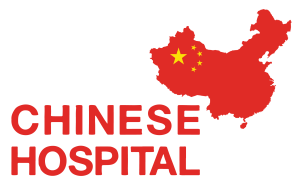Introduction
Cancer remains the leading cause of death in China, with over 4.6 million new cases diagnosed annually. In response to this growing burden, China has transformed into a global leader in oncology clinical trials, offering innovations in immunotherapy, CAR T-cell therapy, targeted treatments, and precision medicine.
In this article, we’ll explore the latest data (up to late 2024) on cancer clinical trials in China, highlight notable drug approvals, and examine how these efforts are reshaping global cancer treatment.
Overview: The Rise of Cancer Clinical Trials in China
In 2020, China registered 722 new cancer trials.
By the end of 2023, that number surpassed 1,150.
As of mid-2024, China ranks #2 globally in number of registered oncology trials, just after the United States.
Clinical trials in China now cover:
Lung, gastric, liver, colorectal, and breast cancer
Rare cancers including nasopharyngeal carcinoma and biliary tract cancers
Blood cancers such as leukemia and lymphoma
Key Focus Areas in Recent Trials
1. Immunotherapy
PD-1 and PD-L1 Inhibitors
Chinese biotech firms (like Junshi and Innovent) have launched homegrown PD-1 inhibitors (e.g., toripalimab, sintilimab).
PD-1 inhibitors showed exceptional outcomes in NSCLC, gastric, and liver cancers.
A 2023 multicenter study on toripalimab reported:
35% increase in progression-free survival
Higher 5-year overall survival in metastatic melanoma vs chemotherapy
CAR-T Cell Therapy in China
Over 80 CAR-T trials are active as of 2024.
Chinese companies like Legend Biotech and JW Therapeutics are pushing global frontiers.
Liso-cel and cilta-cel CAR-T therapies received NMPA approval for lymphoma and multiple myeloma.
Notably, some clinical trials offer free CAR T treatment for eligible patients.
2. Precision Medicine
Targeted Therapy
Lung cancer trials targeting EGFR, ALK, KRAS G12C show high response rates.
Icotinib and anlotinib are now approved in China with robust trial data.
Liquid Biopsy Revolution
China is a leader in ctDNA-based blood testing for:
Early cancer detection
Monitoring relapse and minimal residual disease (MRD)
Burning Rock Dx and Geneseeq offer NMPA-approved assays now used in trials.
3. Traditional Chinese Medicine (TCM) Integration
While still under scrutiny by Western standards, some trials are exploring TCM in adjuvant roles:
Examples: Astragalus-based compounds combined with chemotherapy in gastric and lung cancers
TCM + radiotherapy showed improved symptom control in nasopharyngeal carcinoma
New Cancer Drug Approvals in China (2023–2024)
Durvalumab (Imfinzi) for Biliary Tract Cancer
Approved by NMPA in early 2024
Combines with chemotherapy as first-line treatment
Clinical trial showed:
22% reduction in mortality
Median survival extended by over 3 months
Biliary tract cancer is especially prevalent in East Asia; China accounts for nearly 20% of global cases.
Fruquintinib (Elunate) for Colorectal Cancer
Chinese-developed VEGFR inhibitor
Received FDA approval (USA) in 2023, after successful China trials
Prolonged progression-free survival by 2.7 months in metastatic CRC
Innovative Therapies Developed Through Clinical Trials
1. CAR-T Cell Therapies
Enhanced manufacturing and delivery in local trials
Studies now targeting solid tumors (e.g., liver and gastric cancers)
Development of next-generation CARs targeting multiple antigens
2. TIL Therapy
Tumor-infiltrating lymphocyte (TIL) therapy has entered early-phase trials in China
Shows promise in melanoma and cervical cancer
Focus is on making this approach more scalable and affordable
3. Gene Therapies & Bispecific Antibodies
Trials in 2024 include:
CRISPR-based therapy for blood cancers (safety under review)
Bispecific antibodies targeting CD3/BCMA in multiple myeloma
Global Impact of China’s Cancer Research
Chinese clinical trial data now appears in global regulatory submissions
Increasing participation in international multicenter trials
Strategic partnerships:
Legend Biotech + Johnson & Johnson
BeiGene + Novartis
China is no longer just participating; it is leading.
Future Outlook
By 2025, China aims to:
Be the world’s largest oncology trial site
Approve 10+ novel drugs annually
Reduce average trial-to-approval time by 40%
Government initiatives like the "Healthy China 2030" plan and increased R&D funding are accelerating progress.
Final Thoughts
Cancer clinical trials in China have become a pillar of global oncology innovation. From cutting-edge immunotherapy to cost-effective gene therapy, the country’s advancements are setting new benchmarks for the rest of the world.
Whether you’re a patient, researcher, or medical traveler exploring cancer treatment in China, staying informed on these clinical breakthroughs is essential.
What happens in Chinese cancer research doesn’t stay in China—it influences the global fight against cancer.




